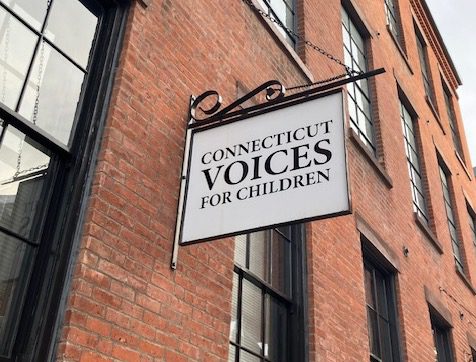CT Voices for Children report calls for permanent state child tax credit
The advocacy group published a report last month recommending the Connecticut legislature enact a permanent statewide child tax credit in 2024.

Zachary Suri, Contributing Photographer
Connecticut is one of the only states with a personal income tax and no child tax credit or equivalent.
Building on a temporary state child tax credit that existed during the pandemic, CT Voices for Children, an advocacy organization based in New Haven, is recommending a permanent child tax credit for Connecticut families.
The report, authored by Patrick O’Brien GRD ’18, CT Voices for Children research and policy director, was released in January. It describes a child tax credit as being a critical measure to address issues of wealth inequality, racial wealth gaps and the cost of living crisis for Connecticut families.
“It could help to reduce income inequality. It could help to reduce racial and ethnic income gaps. It could help to reduce income poverty, and because of the important relationship between income and wealth, it would also then in turn help to reduce wealth inequality, racial and ethnic wealth gaps and wealth poverties,” O’Brien told the News.
According to the report, it costs the average, married, middle-income family $18,390 annually to support a child in the region, with around 18 percent of Connecticut families reporting it “very difficult” to meet expenses — with the figure rising to 27.6 percent for low and middle-income families with children. Following the removal of federal pandemic assistance, child poverty more than doubled among Connecticut children from 3.8 percent in 2021 to 11.1 percent in 2022.
A child tax credit — a refund on a family’s income tax filing for each child — would help make up for this dramatic rise in child poverty, support working families in Connecticut, more equitably distribute the state’s tax burden and bolster the state’s economic growth, which has stagnated in recent years, according to O’Brien.
O’Brien’s report makes the case for a $500 or $600 statewide child tax credit similar to those in place in other states, presenting three different options for implementation with varying degrees of refundability, income phase-in and eligibility cap. The child tax credit would impact up to 82.8 percent of Connecticut children, depending on the option pursued, and cost up to $307.6 million annually.
Connecticut is one of the most economically unequal states, and Connecticut residents face one of the highest costs of living nationwide.
According to Conor Clarke LAW ’15 GRD ’18, professor at the Washington University in St. Louis School of Law, a child tax credit is essentially a social welfare program administered through a state’s revenue service, especially if the refundability is high — allowing families to receive most or all of the funds regardless of how little taxable income they report.
States began implementing child tax credit programs nationwide after the passage of a partially refundable federal child tax credit in 1997, a process of state imitation of federal policy not unusual for tax innovations, according to Clarke. Income tax filings are often used instead of direct welfare programs for distributing funds to residents.
Child tax credits tend to elicit bipartisan support by appealing to Democrats’ desire for progressive tax policy and Republicans’ emphasis on promoting the interests of families.
Connecticut did implement a temporary child tax rebate in 2022 during the pandemic. It was modeled on a temporary federal child tax credit passed as part of the American Rescue Plan Act, contributing to a historic drop in child poverty nationwide. According to O’Brien, however, the state program’s impact was limited as it required a separate process to claim the funds rather than being included in every family’s income tax filing.
O’Brien’s preferred option would be fully refundable up to $500 per child on the state’s income tax filing, with no income floor, no income-based phase-in and no cap on the number of children eligible.
“$500 fully refundable over the $1,400 refundable part of the federal tax credit does just strike me intuitively as a nice size,” Clarke said of CT Voices for Children’s proposal.
However, Clarke does not consider the state’s lack of a child tax credit a critical issue alone, favoring instead a holistic approach to evaluating a state’s support for working families.
Joe DeLong, executive director and CEO of the Connecticut Conference of Municipalities, voiced support for measures aimed at addressing the inequity of the state’s tax code like the child tax credit, but remains adamant that broader progressive reform is necessary.
“You can’t continue to have a regressive tax code that’s really built on protecting the wealthy and have these types of programs work,” DeLong said of the child tax credit proposal.
He expressed concern with what he perceives as Governor Ned Lamont’s commitment to reducing the tax burden on the state’s wealthiest residents while the municipalities his organization represents are forced to raise property taxes to pay for essential services.
“In the shadows, what ends up happening is more and more is getting shifted into the property tax and down on the lower income people,” DeLong told the News.
At the beginning of this legislative session, Rep. Kathleen McCarty introduced H.B. No. 5034 to the General Assembly, a bill that would create a child tax credit similar to that proposed by the CT Voices for Children report. Earlier this month, the bill was referred to the Joint Committee on Finance, Revenue and Bonding.
Connecticut first implemented a state income tax in 1991.
Interested in getting more news about New Haven? Join our newsletter!







